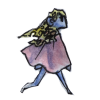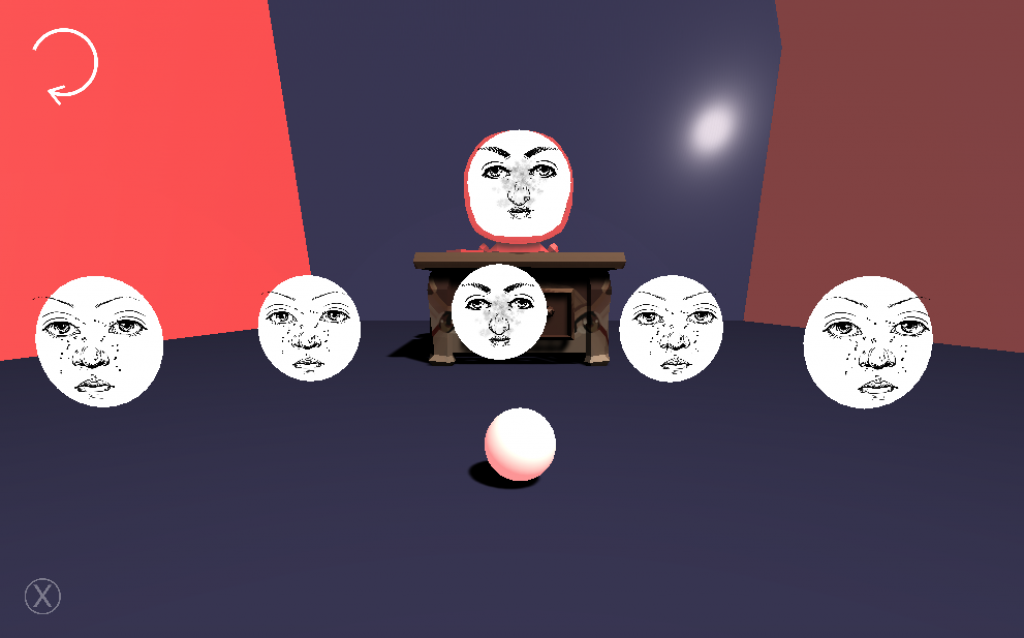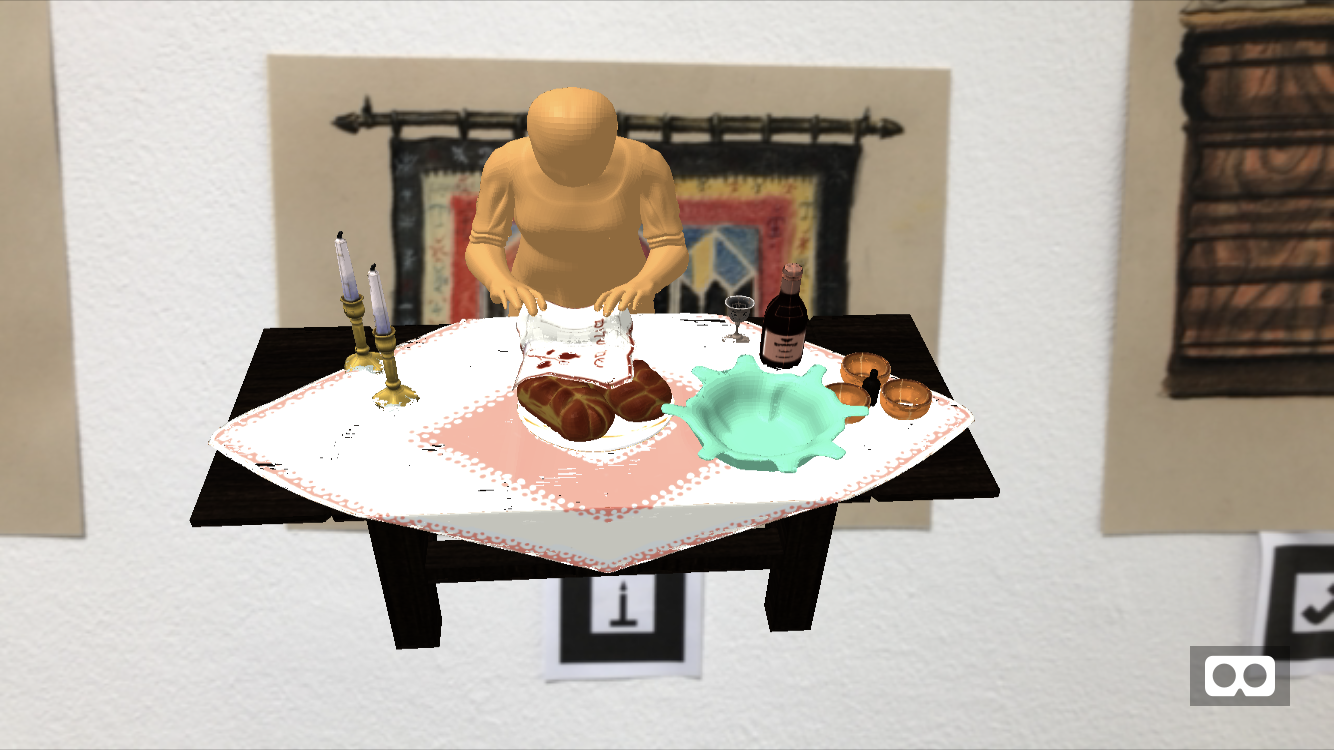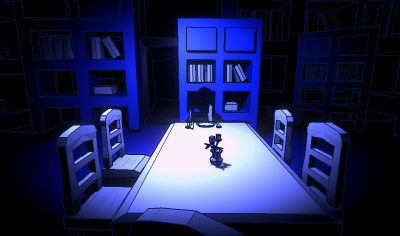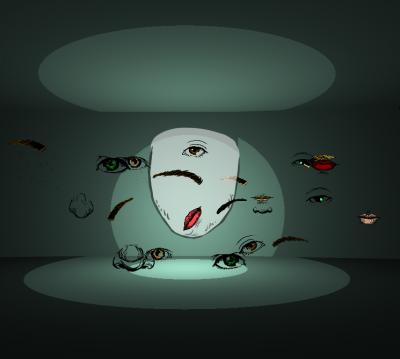My final project about Prosopagnosia has a few proof-of-concept and prototype pieces that I will collect here.
These are all games made in Unity 3D.
Prosopagnosia
Prosopagnosia is a neurological condition where people cannot recognise other people by their faces. This can be an acquired condition, such as after brain damage or stroke, or, as in my case, it can be congenital. I first realised that I couldn’t recognise faces as a kindergarten child, but it wasn’t until I was almost an adult that I learned this was not normal. Because I grew up with it, it does not cause me as much distress as it might to someone who acquires it. I have never known any different.
The commonly used word “face blindness” is a bit of a misnomer. It is not a problem with my vision, it is a memory problem. My eyes are fine, but I cannot form lasting memories of faces and/or recall them correctly when I see the same face again. I went through multiple diagnostic tests and am involved in ongoing medical research for prosopagnosia.
Prosopagnosia, a relatively harmless, but often very upsetting condition, is my jumping board into my final project. Identity, neurodiversity and disability come together here for a theoretical deep dive.
Come with me on my journey to explore this topic.
Comic: Prosopagnosia

–
2016
My first exploration into this topic from an artistic corner.
In collaboration with Christina Pressl, M.D. from The Rockefeller University, this comic was created as an educational tool for parents and affected children to raise awareness of this condition. It was made specifically for a scientific comic anthology by the Boston Comics Roundtable in 2016.
Fleetling
Click here to play (for free, in browser)
Fleetling enacts the memory issue with face blindness. Every face you see fades from memory rapidly. So the task “add memory” is futile in the end.
Comes with a goof around/free draw mode.
–
22.12.2020
Build a Head
Click here to play (for free, in browser)
A dress-up-game style tool for making a head, including hair and glasses. I re-used the assets from my Picrew game and coded everything (except the color wheel) from scratch as a proof of concept.
–
24.12.2020
Build a Face
Click here to play (for free, in browser)
The evolution of “Build a Head”, here I cut away the extras such as hair and accessories and went closer to just the face. Unlike in face blindness tests, I still included the face shape and allowed for coloring.
I here wanted to explore what it takes to make a face. What are the elements and how can I move and manipulate them until it no longer is recognisable as a face? How will people use a tool like this, will they try to reduce the uncanniness or will they embrace it and go wild?
Would how a prosopagnostic person might use a tool like this and how a non-prosopagnosiac would use it differ?
–
25.12.2020
Face Randomiser
Building on the assets made in “Build a Face” this is the evolution that takes away the ability to control what the face looks like. The face randomiser creates one of over 250 random assortments of features with randomly generated proportions and sizings.
I was interested in how similar or how different the faces might look.
–
28.12.2020
Odd One In
Click here to play (for free, in browser)
Using the face randomiser in a 3D-game environment, Odd One In informs about prosopagnosia in a playful way while presenting a fun, harmless challenge: find the face that is not like the others/the face that looks like the sample one. There is a “hard mode” where the face shape disappears, making things much more how they are in a prosopagnosia diagnostic test.
–
30.12.2020
Käfer
Click here to play (for free, in browser)
Käfer is German for Beetle.
Ludwig Wittingstein’s beetle in a box is one of his philosophical musings. This one questions how we talk about how we feel/what we feel. And in it, there is a box that is labled to contain a beetle. If everyone got one box and everyone had a different thing inside, we would still call that thing a beetle since that is the word given to us to describe it.
It is not about knowing what the other’s boxes contain, it is about recognising that it may differ from what I have in my box aka that other people’s experiences may be fundamentally unlike mine. I cannot, just by considering my own beetle, make adequate conclusions about your beetle.
I have been reading too much philosophy in the past three weeks.
You can also just throw the lid around, go live your best life.
Pathologic
Click here to play (for free, in browser)
Do you enjoy Flappy Birds? (No you don’t, stop lying) ahem, anyways. You know what the most common emotion is when playing Flappy Birds? Frustration. You know what else is frustrating? Getting a medical diagnosis if you are chronically ill.
Enjoy jumping around assumptions, hurdles and roadblocks on your way to being taken seriously enough to be told you need help – wether or not you GET it is something else again though. However, if you even want a chance at the accommodations that, a chronically ill person, need in order to participate in life and society as a whole, you need to first get diagnosed. Otherwise: tough cookies.
This is the theme of this game. It’s on the nose, unelegant and ugly and I still had a blast making this as a piece of vent art.
Who Are You Again?
Click here to play (for free, in browser)
I keep talking about this thing in medical terms. I hate that. Let’s talk about it in human terms, in experience. Maybe instead of trying to justify myself to strangers, teachers, parents, doctors and just people over and over again, digging up traumas and draining myself for a shred of empathy, how about you walk a mile in my shoes… in a video game?
I update as we go along, but this looks to be THE game I may end up making. A culmination of all my projects, if I can get it all to run.
